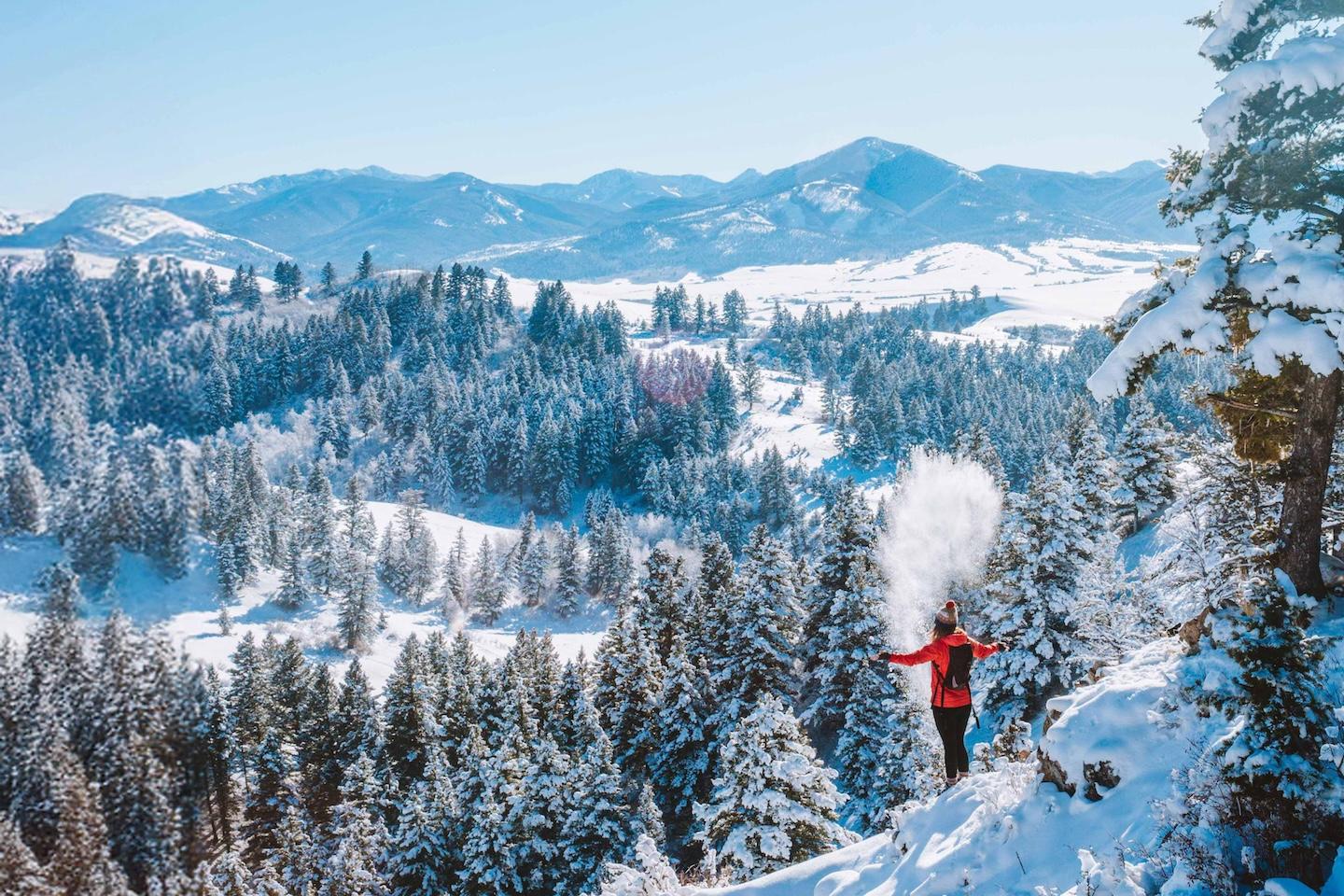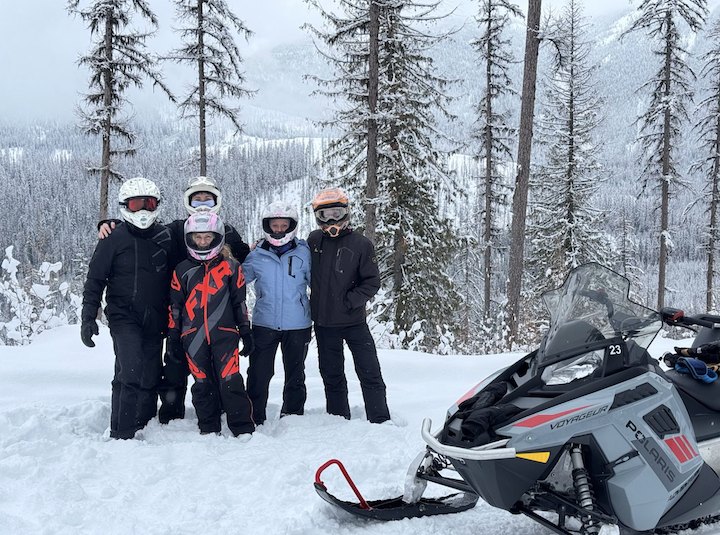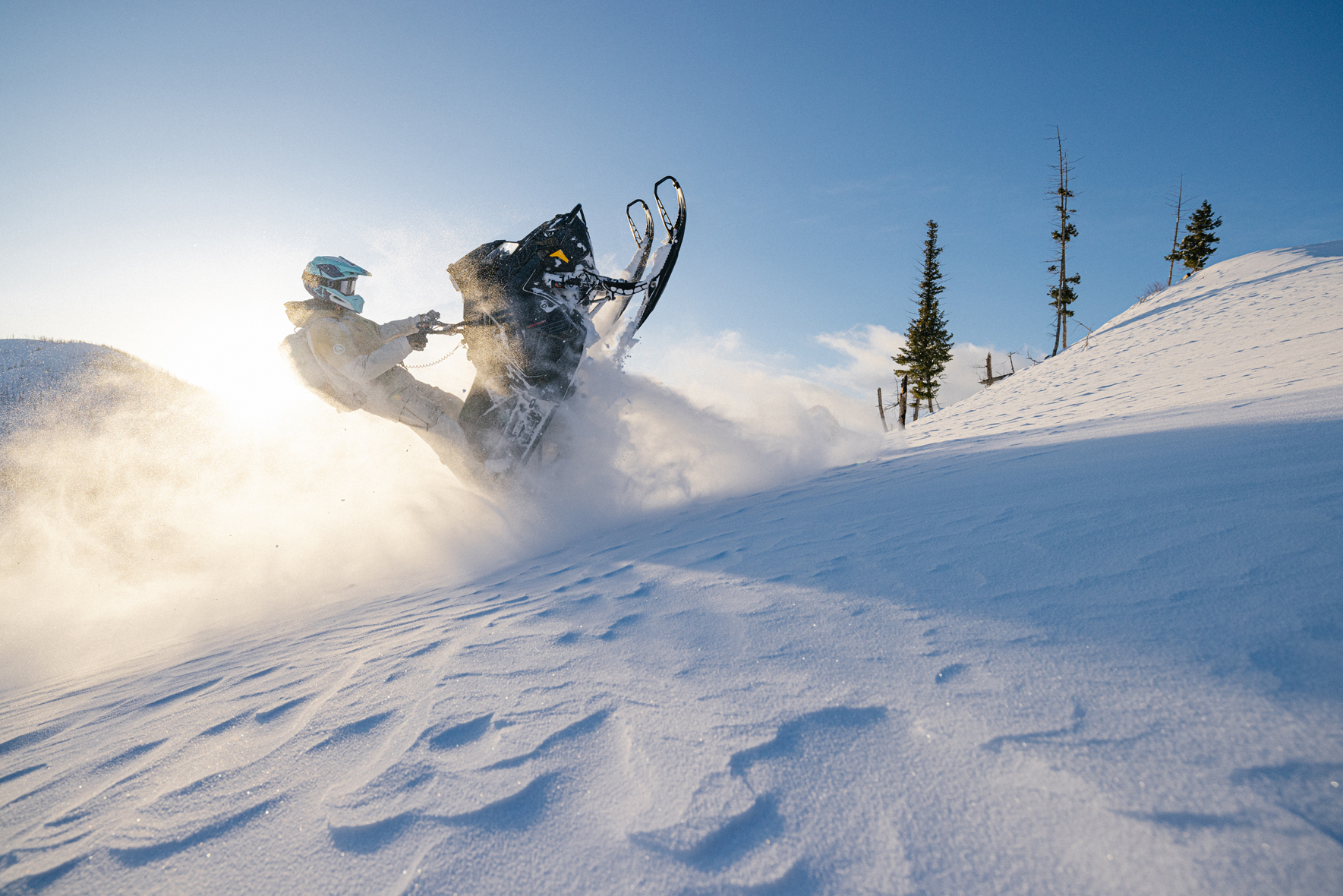Stay Safe in Bear Country
Wildlife is just that—wild. It's important to act responsibly around wildlife, and it's also vital that, while recreating in the area, we help preserve and enhance wildlife habitat by practicing Leave No Trace principles.
- View wildlife from the safety of your car or from a safe distance. Stay at least 100 yards away from bears and at least 25 yards away from all other wildlife such as mountain goats and bison.
- Never approach, touch or feed wildlife, even when an animal does not seem to be threatened by your presence.
- Let wildlife know you're nearby. When hiking, be sure to bring a friend, carry bear spray, stay on designated trails and make noise at regular intervals.
Recreating in Bear Country
It's important to remember that we share the land with wild animals. Many grizzly and black bears travel the forests, trails and terrain of Glacier Country. Grizzly bears are identified by a distinctive hump on their shoulders. Typically, their coats are dark brown, but can vary from very light cream to black. Grizzlies weigh between 400 and 1,500 pounds and can stand up to 8 feet tall on their hind legs. They also move very quickly and can reach speeds of up to 35 miles per hour. When recreating in bear country, it's important to follow and practice certain rules and guidelines.
- Stay 100 yards away from bears at all times. If you encounter a bear, never approach it. Back away slowly and leave the area.
- Carry bear spray and know how to use it. Be prepared to deploy it immediately.
- Hike in groups of three or more people.
- Don't hike at dawn, dusk or at night, when grizzlies are most active.
- Don't use perfumes or scented body lotions.
- Be aware of your surroundings at all times and look for bear signs. Most bears prefer to avoid people. When hiking, be sure to make noise, such as clapping, whistling or singing, so bears and other wildlife know you're coming.
- If you see a decomposing animal carcass or smell a strong odor, be sure to give a wide berth to the area, as bears are attracted to these smells.
- Read signs at trailheads and stay on trails. Be especially careful around creeks and in areas with dense brush.
- Never enter a closed trail.
- Camp in designated camping areas.
- Maintain a clean campsite. Follow food storage orders. Be sure to store food in a bear-proof canister or hang it between trees at a height unreachable by bears.
- Be sure to pack out all garbage. Remember, even if it's an organic or biodegradable item—like an orange peel, apple core or cherry pit—it is not native to the forest and takes a long time to decompose. Plus, these are not foods animals find in their natural habitat and they can become sick if they eat them.
- Bear Encounters: Once a bear has noticed you and is paying attention to you, additional strategies can help prevent the situation from escalating. Read more from the National Park Service about bear encounters here.
- Remember that bears will fiercely defend their cubs. Don't come between a cub and a sow.
Read more about bear safety from Be Bear Aware.
Read more about wildlife safety from Be Bear Aware.





